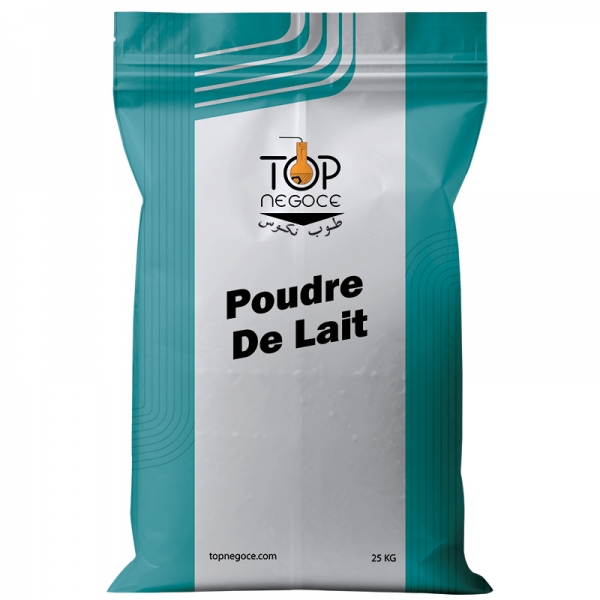Milk powder is a dairy product obtained by evaporating the water content from liquid milk, leaving behind a concentrated form of proteins, carbohydrates, fats, minerals, and vitamins. It is ideal for long-term storage while preserving the nutritional value of milk. Used across various industries, milk powder stands out for its ease of transport, longevity, and diverse applications.
Characteristics:
- Form: Fine powder, white to slightly cream-colored.
- Nutritional properties: Rich in proteins, calcium, vitamins A and D, as well as other essential minerals.
- Solubility: Easily dissolves in both hot and cold water.
- Residual moisture: Very low (approximately 4-5%).
- Proteins: Contains around 35-40% protein, depending on the type of powder (whole milk, skimmed milk, etc.).
- Packaging: Available in 25 kg bags or customized packaging based on specific needs.
Applications:
- Food industry: Used in the production of dairy products such as yogurt, cheese, ice cream, sauces, and milk-based beverages.
- Infant nutrition: Found in infant formulas and milk powders designed for young children.
- Powdered foods: Key ingredient in instant soups, beverage mixes, and other instant nutrition products.
- Cosmetic industry: Ingredient in skin care products due to its moisturizing and nourishing properties.
- Medical applications: Used in nutritional mixes for dietary supplementation or in clinical regimens for reconstituting nutrients.





